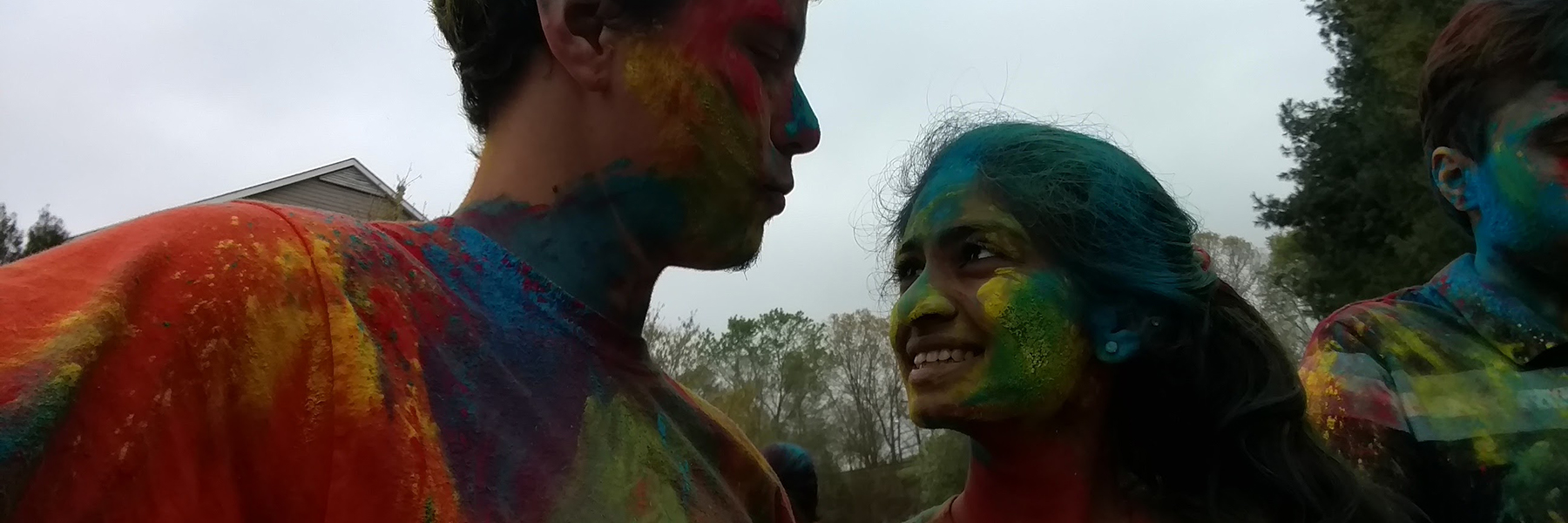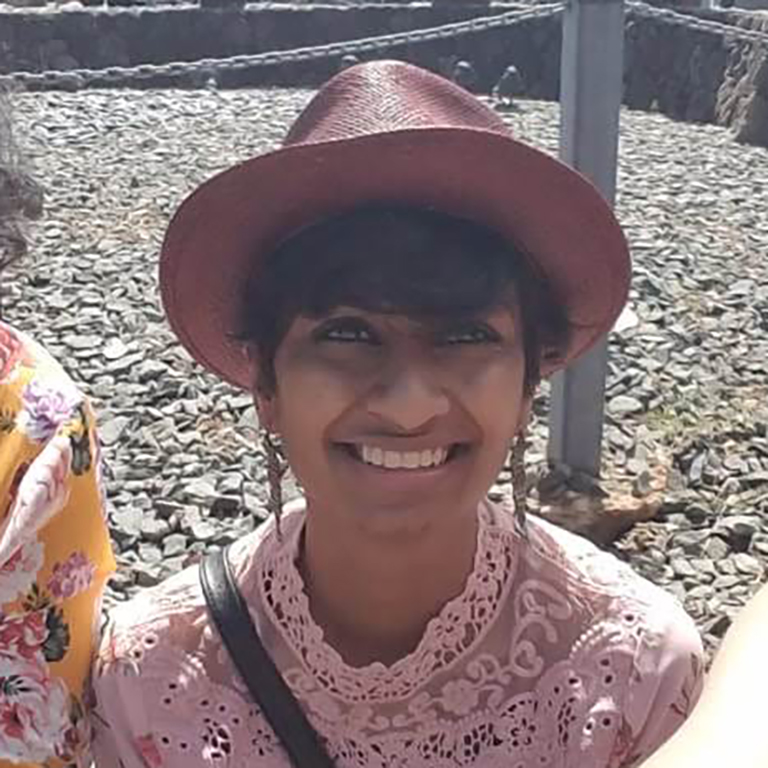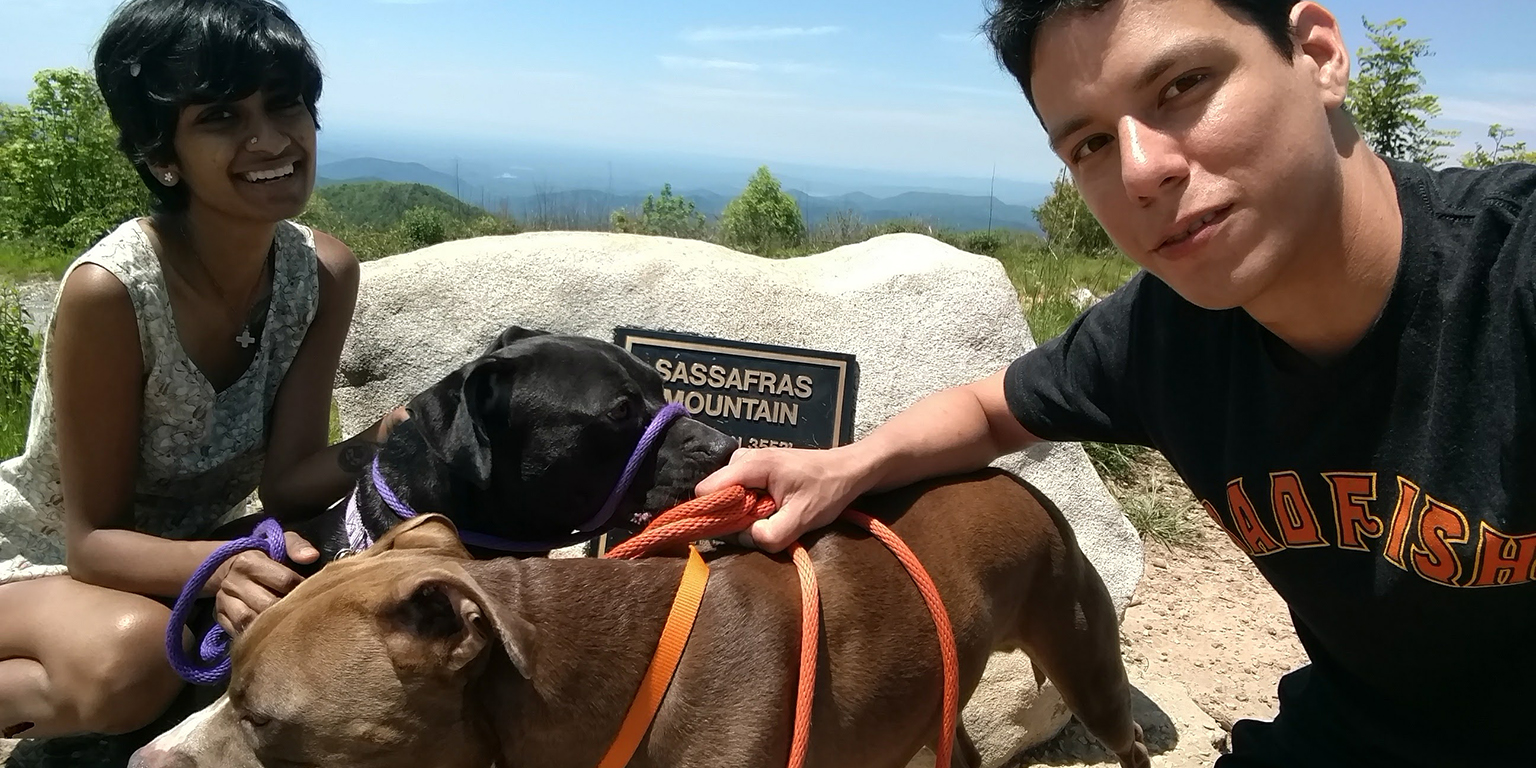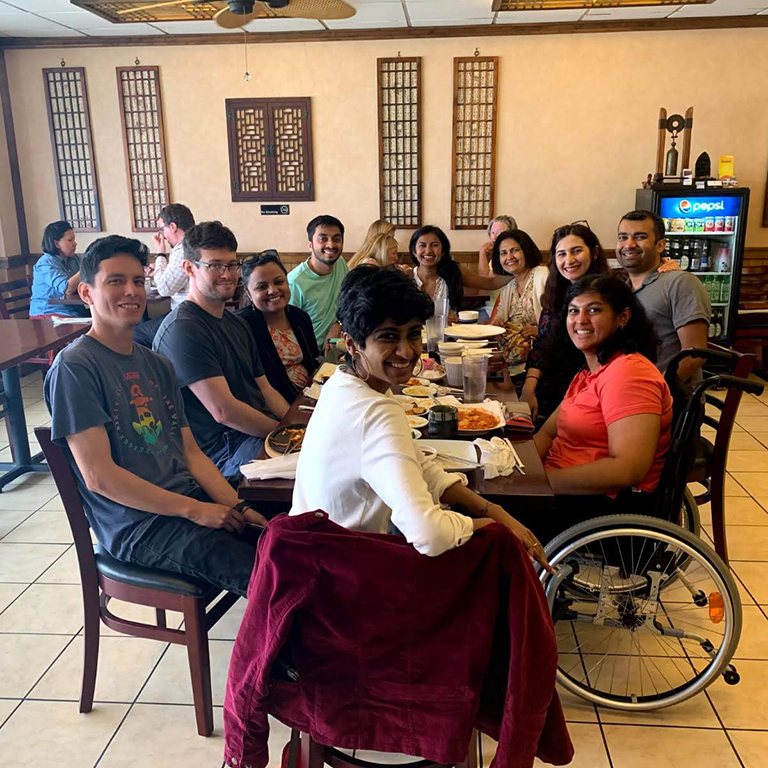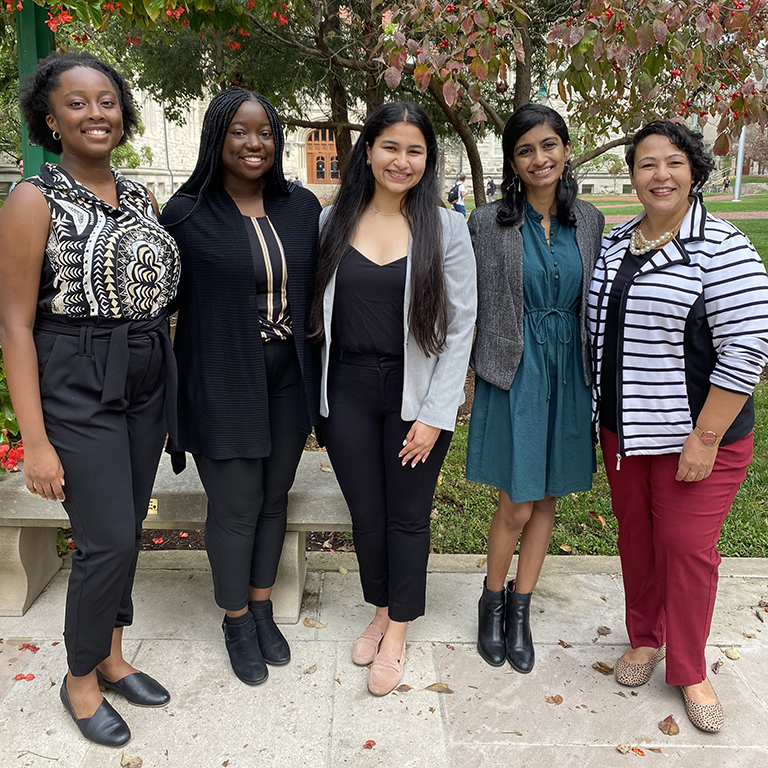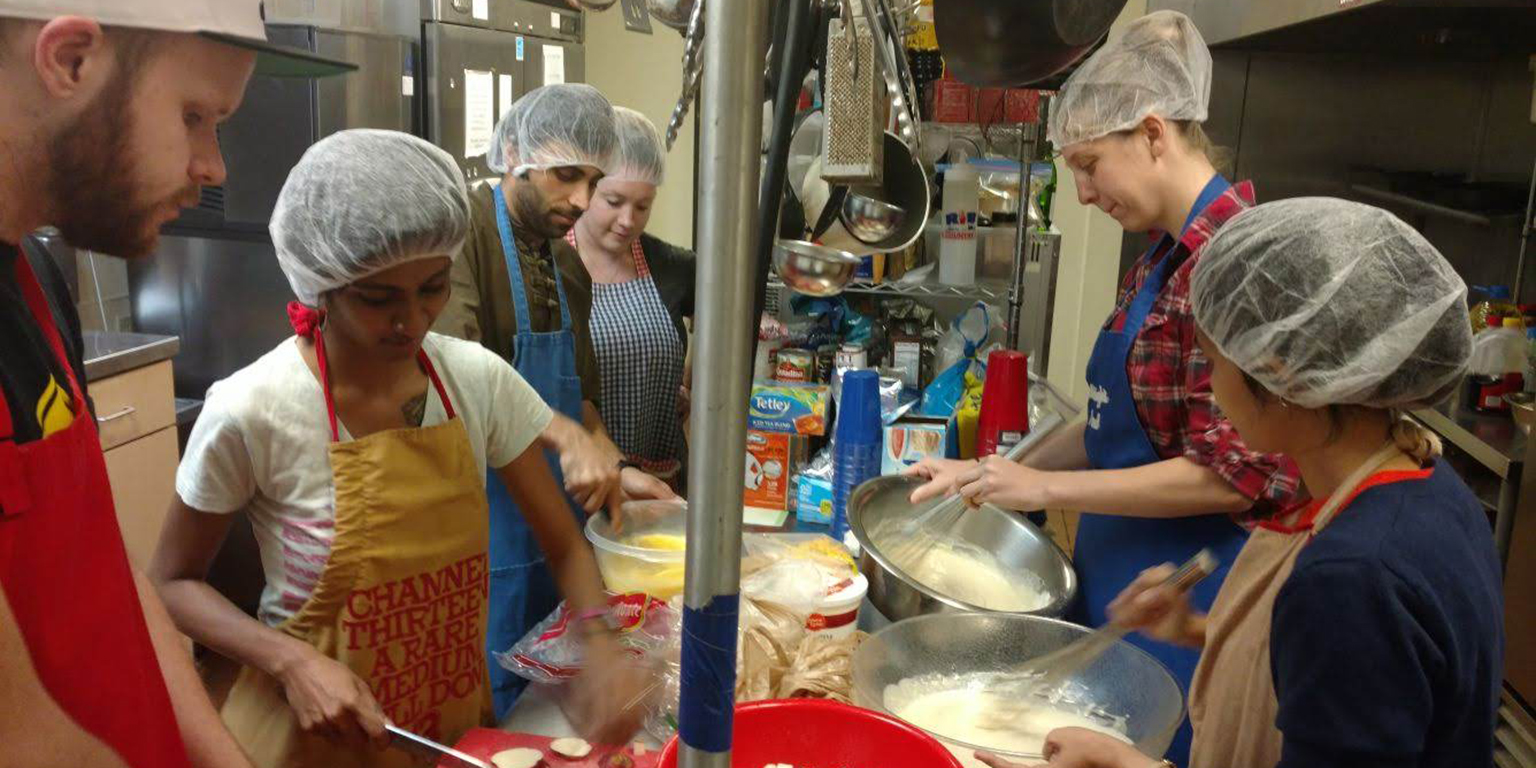As a research assistant at Clemson University — where she earned her Doctor of Philosophy in education — Farfan D’Souza helped develop a curriculum that combined identity, dance, and computer programming to encourage middle school girls to pursue computer science, with a long-term goal to increase women in tech and computing. She also worked with Action Research Collective, a student-driven research group that examined the experiences of graduate students of color through the lens of critical race theory and shared the findings with the larger community through photo exhibitions and reports to senior leadership to help guide their strategic planning.
Her work at IU began in 2019, when she joined the Office of the Vice Provost for Diversity and Inclusion as a postdoctoral fellow. Her work in that role included leading dialogues around DEI between student organization leaders and senior university leaders; evaluation of existing DEI programming in the residence halls; managing the Jane Jorgensen DEI Internship Program; directing and mentoring an undergraduate student action research group focused on improving equity on campus, and conducting research to inform these or any DEI efforts in higher education.
In her new position as associate director for student support and bias response with the Division of Student Affairs, Farfan D’Souza supports students impacted by bias and discrimination, advises student leaders on their DEI initiatives, develops programs and educational resources around bias and DEI, conducts research and creates reports to share information around bias, and co-leads the division's DEI committee. Farfan D’Souza also loves science and remains engaged in science education through her work. She earned a Bachelor of Science, Chemistry, Microbiology and Zoology, and a Master of Science in biochemistry, both from Bangalore University in India, also working as a science teacher for a few years. She continues to mentor STEM students, create equitable STEM resources for faculty and students, and loves to read science-fiction novels.
Q: Tell us about your path to IU. How did you end up here, and what inspired you to stay?
A: I will always remember the day I moved into Bloomington with my family in 2019, because it was Halloween night, and it was snowing. I applied to IU for postdoctoral work based on recommendations from my advisor at Clemson University, who had graduated from IU, and from my mentor, who was moving back to Indiana. The OVPDI role was an inaugural postdoctoral fellowship that offered support for research and DEI program development. This was unusual at the time because most postdoctoral positions are research or teaching positions. The role allowed me to pursue my passion for equity through program development and research, and each informed the other. This role was in central administration, which gave me the opportunity to make a larger impact with my work on IUB as a whole. I stayed, even after my postdoctoral contract ended, because from my first day of work I was lucky to work with some amazing people, including many impressive students, who share the same DEI values. I found a community here that I never had before in the United States.
Q: Why is DEI education so important? Any trainings you want faculty and staff to know about?
A: As education professionals, our goal has always been to support ALL students to succeed and live their best lives in this world. To achieve this goal, I see DEI education as essential to student support and success. If we look at the history of higher education, or even look at the current status of who is in the university and succeeding versus who doesn’t have access to they university or to succeed in one, we will instantly recognize the importance of practicing values of DEI and engaging in DEI education. I see DEI education as providing an essential professional skill. It helps us understand how different people come into a space – whether it is our office, a classroom, a lab, or a residential dorm – and how we can serve them better so they feel respected and that they belong here, which leads to successful outcomes for our students. This makes us better educators, administrators, and leaders. I encourage faculty to browse resources from Center for Innovative Teaching and Learning, which I have been collaborating with to support faculty in DEI education. We are in the process of creating DEI education resources for our staff in the Division of Student Affairs starting this spring (2023). We also are going to offer opportunities for students to engage in bias response and education this spring.
Q: What do you love about your work? What do you want people to know about your job/office that they might not know about?
A: My favorite part of this job, as always, is working directly with students. Even though my job responding to bias incidents can be challenging and disheartening, I am grateful that I can directly work with students and support them through challenging times. I am honored to work with student leaders in the DEI space who have such an impressive commitment to learning and improving educational spaces for their peers. One thing I often hear about the work our office does is that people are either not aware that it exists or do not know what happens to incident reports. I encourage people to visit our website to learn more about what bias is, how to report it, and how it is addressed. We take every reported incident extremely seriously and follow up to address the situation immediately and support the student impacted.
Q: What are your favorite spots on campus and in Bloomington?
A: I find the whole IUB campus beautiful and always enjoy walking everywhere. I love watching the fall leaves change color; as an Indian immigrant, this is new to me. I am also still new to the campus because I was not able to explore as much during the pandemic. I am always looking for suggestions, but my favorite spot now is sitting by the little river or creek that flows through Dunn meadow. I love anything by the water.
Q: What would you tell a doctoral student considering coming to IU for a DEI-focused postdoc?
A: The first advice I would give incoming doctoral students considering a DEI focused postdoc is to make it their own that would best align with their professional goals and values. Often, we are stuck waiting on advice or instruction. I believe initiating something with your supervisor or department before they do is a great way to showcase your professional and leadership skills, and, most importantly, work on projects that are valuable to you. The second would be to reach out to people on campus who are working in areas you’re interested in and find ways to learn from them and collaborate. The first thing I did when I came here was to introduce myself and talk to many people in the DEI field who have more experience than me, especially at IU, which was extremely valuable to me and my career growth.


